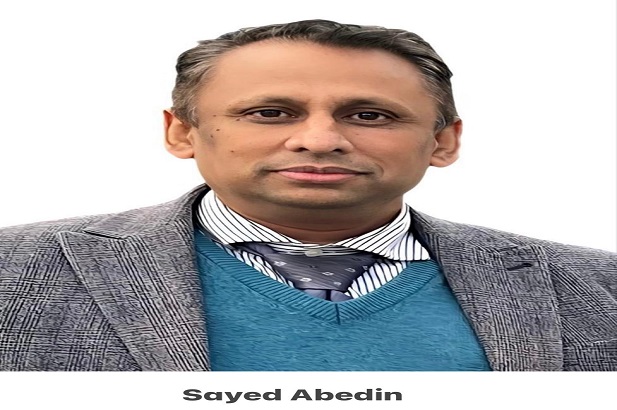
The Tribunal of Convenience: Dr. Yunus’s Legal Circus Against Sheikh Hasina
- By N/A --
- 07 February, 2025
By Sayed Abedin-[Solicitor of Senor Courts of England and Wales and Barrister]
In a plot twist that could rival the most absurd courtroom dramas, Bangladesh’s International Crimes Tribunal (ICT), once a beacon for justice against 1971 war criminals, has now been repurposed into a kangaroo court against Prime Minister Sheikh Hasina and her government. The accusations of genocide and crimes against humanity levied against her for the events of July-August 2024 rest on a foundation so legally flimsy that even the slightest scrutiny exposes its illegitimacy. What we are witnessing is not justice but a masterclass in legal contortionism, where constitutional principles are trampled, laws are rewritten overnight, and the rule of law is replaced by the rule of political vendetta.
A Tribunal for Political Convenience
The ICT Act of 1973 was never intended to prosecute contemporary political figures. It was designed exclusively to address war crimes committed during the Liberation War of 1971. But in the hands of Dr. Yunus’s administration, it has been stretched, twisted, and manipulated into a weapon of political persecution. The amendment passed via Presidential Ordinance on November 24, 2024—under an administration that lacks any constitutional legitimacy—retroactively extended the ICT’s jurisdiction to cover alleged crimes from 2009 onwards. A move so constitutionally outrageous that it could set a new world record for judicial overreach.
A President with a Magic Wand?
Bangladesh’s Constitution strictly limits the President’s ordinance-making power under Article 93, ensuring that executive authority cannot override fundamental rights. But Dr. Yunus’s administration has never been one to let a pesky thing like the Constitution get in the way of their ambitions. Bypassing parliamentary scrutiny, the extension of the ICT Act violates Article 7, which states that any law inconsistent with the Constitution is void. Sheikh Hasina’s prosecution under this absurdly retroactive law is not merely a mistake—it is a full-scale assault on constitutional order.
Adding to the absurdity, the Yunus regime has granted blanket immunity to the violent protesters responsible for deaths, arson, and destruction in their rampage against Hasina’s government. Under this warped legal structure, those who committed actual crimes are walking free, while those who tried to maintain law and order are being put on trial. If this is justice, then clowns should run the Supreme Court.
The Grand Legal Fiction: Criminalizing the Past
No citizen can be convicted of an offense unless it was legally recognized at the time the act was committed—this is a fundamental principle of law, enshrined in Article 35(1) of the Constitution. But Dr. Yunus and his legal henchmen have taken a different approach: why let a minor inconvenience like legality get in the way of a good witch hunt?
Expanding the ICT’s jurisdiction decades later and applying it retroactively to Sheikh Hasina’s government is not just legally dubious—it is a constitutional horror show. Fundamental rights, including protection from retroactive criminal liability, are absolute. Even a constitutional amendment cannot strip these rights away, let alone an illegal ordinance issued by an administration with zero legitimacy.
Fraud on the Constitution: A Masterpiece in Judicial Gymnastics
This case is a textbook example of ‘Fraud on the Constitution.’ The doctrine of Colourable Legislation, reinforced by landmark rulings such as State of Bihar v. Kameshwar Singh (1952), makes it clear that a law cannot be used to achieve indirectly what is prohibited directly. Yet, here we are—watching a government without legal standing attempt to mask its political persecution as a judicial process. If there were an Olympic event for constitutional fraud, the Yunus administration would take home the gold.
The absurdity deepens when we consider the breach of natural justice. The ICT proceedings have been marred by blatant bias, predetermined verdicts, and a laughable disregard for due process. When the judge, prosecution, and executioner all belong to the same political clique, what hope remains for a fair trial?
The Doctrine of Non-Recognition: The Elephant in the Room
According to Article 57 of the Constitution, Sheikh Hasina remains the legitimate Prime Minister of Bangladesh, as she neither resigned nor relinquished her office. The Yunus-led administration, formed through unconstitutional means and lacking the people's mandate, is simply a ghost government—a legal fiction with no constitutional standing.
The Doctrine of Non-Recognition, a cornerstone of both constitutional and international law, dictates that governments established through unlawful means do not deserve legitimacy. Applying this doctrine to Bangladesh, the Yunus-led regime fails every test of lawful governance. It is, in effect, an administration that exists only on paper, yet is somehow initiating tribunal proceedings against the legitimate head of state.
Conclusion: A Tribunal Without Legitimacy, A Trial Without Justice
The ICT proceedings against Sheikh Hasina are not just unconstitutional—they are an insult to legal reasoning. With a tribunal established on a fraudulent legal foundation, a government that lacks any legitimacy, and a judicial process that mocks natural justice, this entire spectacle is nothing more than political theatre.
The real crime here is not what Sheikh Hasina allegedly did between July and August 2024—it is what the Yunus administration is doing right now: dismantling democracy, weaponizing the law, and turning Bangladesh into a case study in constitutional sabotage.
For a democracy to survive, the rule of law must triumph over the rule of political expediency. If this circus of injustice is allowed to stand, the consequences will extend far beyond Sheikh Hasina—setting a dangerous precedent for all future governments in Bangladesh and beyond.
And so, the world watches: Will justice prevail, or will Bangladesh’s Constitution be rewritten overnight yet again, just to serve the whims of those in power?
By Sayed Abedin-[Solicitor of Senor Courts of England and Wales and Barrister]





















